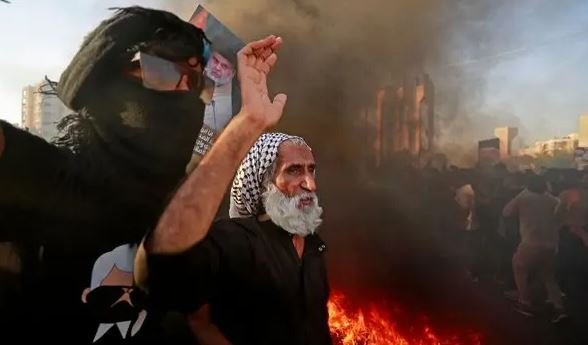In the early hours of Thursday morning, a violent protest unfolded at the Swedish embassy in Baghdad, as protesters stormed the premises and set it ablaze. The incident was confirmed by a source familiar with the situation and witnessed by Reuters personnel.
Remarkably, no harm was inflicted upon embassy staff members during the tumultuous events, as reported by the aforementioned source. However, the source refrained from divulging further details. Meanwhile, the Swedish embassy officials in Baghdad have yet to respond to requests for comment, leaving the situation without official clarification.
The protest was orchestrated by fervent supporters of Shi’ite cleric Muqtada Sadr, who had called for this demonstration in response to alleged plans of burning the Muslim holy book, the Koran, in Sweden. Such actions in the past have triggered outrage and condemnation in various Muslim-majority countries, leading to widespread protests.
Videos capturing the incident were disseminated via One Baghdad, a prominent Telegram channel known for supporting Sadr and his followers. The videos exhibited a gathering of people around the embassy at approximately 1 a.m. on Thursday (2200 GMT on Wednesday), followed by the protesters storming the embassy complex about an hour later.
Rioters are currently Storming and have set Fire to the Swedish Embassy in the Iraqi Capital of Baghdad. pic.twitter.com/SUDGCP2W4V
— OSINTdefender (@sentdefender) July 20, 2023
As the situation escalated, subsequent videos emerged, showing thick smoke rising from a building within the embassy complex. However, the authenticity of these videos could not be independently verified at the time. It remains unclear whether anyone was present inside the embassy during the chaotic events.
As the situation unfolds, authorities and international communities are closely monitoring the developments in hopes of understanding the motives and repercussions of the violent protest at the Swedish embassy in Baghdad.
The government of several Muslim countries, including Iraq, Turkiye, the United Arab Emirates, Jordan and Morocco issued protests about the incident.
The United States also condemned it, but added that issuing the permit supported freedom of expression and was not an endorsement of the action.













